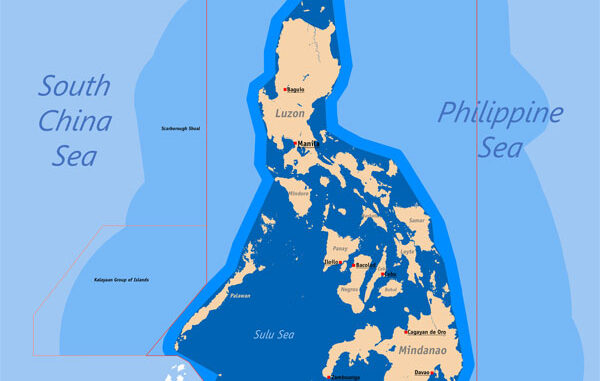
An expert on national security has expressed confidence the incoming Donald Trump presidency will maintain the United States’ strong relationship with the Philippines.
Meanwhile, China reasserted its territories around a flashpoint reef in the South China Sea on Sunday, two days after the Philippines defined its own sea boundaries in the contested waters.
National Security expert Dr. Chester Cabalza told Manila Standard that Manila can expect the US to be be more assertive in global affairs to further strengthen its international leadership.
“But we can expect that Washington will become more assertive in world affairs to cement its global leadership against competing rivals.” Cabalza said.
“Not a radical shift, but a realignment to his would be Indo-Pacific strategy,” he pointed out..
According to Cabalza, Trump will still secure Philippine-American relations, and may even use Manila on how to contain Beijing to compete straightforward with Washington.
The Armed Forces of the Philippines (AFP) on Thursday expressed optimism that Washington will maintain its support on the West Philippine Sea (WPS) under Trump.
“Our long history of shared values, common interests, and respect for international law will transcend administrations both in the US and in our country,” Philippine Navy spokesperson for WPS Rear Admiral Roy Vincent Trindidad told reporters.
“Our military relationship will remain strong. It is both in our interests that the Indo-Pacific will remain free and open to all,” he added.’
Meanwhile, US Ambassador to the Philippines Mary Kay Carlson highlighted China's aggressive actions over the past 18 months in the WPS.
Speaking at the Manila Dialogue on the South China Sea Panel of "Peace and Stability in the South China Sea: The Stakes of the International Community", Carlson said China has taken dangerous actions in the South China Sea, including interfering with Philippine navigation rights and violating the rights of other ASEAN nations like Vietnam and Indonesia.
These actions include the use of water cannons and ramming fishing boats, showing disregard for lives and livelihoods.
"The world has witnessed the PRC’s increasingly dangerous and escalatory actions over the past 18 months, as it unlawfully asserted a claim to territorial sovereignty over vast areas of ocean space, violently interfering with the Philippines’ high seas freedom of navigation in the waters, especially near Second Thomas Shoal, known here in the Philippines as Ayungin," Carlson said.
She explained that the US, the Philippines, and like-minded partners were aiming for a free, open, prosperous, and resilient Indo-Pacific, with respect for the rules-based international order.
She also reiterated that the US supports the 2016 ruling that affirmed the Philippines' sovereign rights in the South China Sea.
President Marcos on Friday signed two laws defining the country's sea waters and imposing fixed lanes for foreign ships, sparking a sharp riposte by China which summoned Manila's envoy.
Beijing's foreign ministry said in a statement on Sunday that the government had "delimited and announced the baselines of the territorial sea adjacent to Huangyan Dao." "This is a natural step by the Chinese government to lawfully strengthen marine management and is consistent with international law and common practices," it added.
It took control of Huangyan Dao, the Chinese name for Scarborough Shoal, in 2012—a strategic feature in the South China Sea closest to the Philippines.
China has brushed aside an international ruling that its claims to most of the South China Sea has no legal basis.
The Philippines' Maritime Zones Act marks out waters that fall within Manila's territory as well as areas outside of it to which it has maritime entitlements, as agreed by the UN Convention on the Law of the Sea.
They include some waters contested by China which claims almost the entire South China Sea and has brushed off rival claims of several Southeast Asian countries, the Philippines among them.
A second law, the Archipelagic Sea Lanes Act, authorises the president to impose fixed sea and air routes through which foreign ships or planes may pass "without compromising our national security," Marcos said at the signing ceremony. With AFP


Be the first to comment